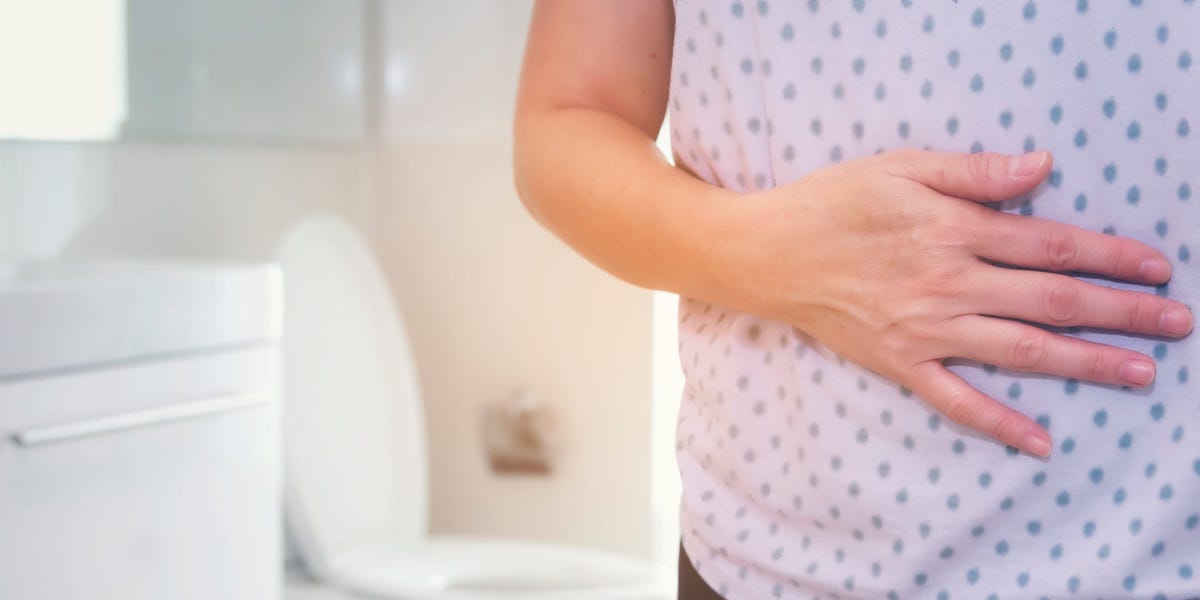Constipation, or having a bowel movement less than thrice a week, is normal every once in a while, but it can be highly uncomfortable and painful if it persists beyond that.
Symptoms include dry, hard stools that are difficult to pass, feel uncomfortably full, and the constant feeling that you haven’t fully emptied your bowels even after going to the bathroom.
To naturally relieve constipation, it’s important to exercise regularly, drink plenty of water, and eat more foods that are rich in fiber, a type of carbohydrate that stimulates digestion.
“Increasing fiber intake can help with constipation as fiber helps move food through the digestive system,” says Ayana Davis, MS, a registered dietitian nutritionist at the UCSF Cancer Center and the owner of Ayana Davis Nutrition.
You can try easily available over-the-counter laxatives for immediate constipation relief, such as stool softeners and fiber supplements. You can also encourage a bowel movement by elevating your feet on a stool.
Here are the foods you should consume and avoid and the laxatives you can take when you’re constipated.
Several types of over-the-counter laxatives can relieve constipation, such as:
Many individuals tend to overuse laxatives, which can cause your body to become dependent on them.
It’s best to avoid using them habitually because severe cases of dependence may cause damage to the tissues, nerves, and muscles of your intestines and bowels.
If you do decide to use laxatives, start with a quarter or half dose to see how it affects your body.
Diet can be one of the main sources of constipation. Most people consume only 15 grams of fiber per day, which is about half of the recommended daily fiber intake. It’s important to eat about 25 to 38 grams of fiber daily to avoid and relieve constipation.
There are plenty of foods with high fiber content, such as:
“It is best to gradually increase fiber intake by five grams per day,” says Davis, because adding fiber too quickly can lead to abdominal cramps, bloating, or intestinal gas and can sometimes make constipation worse.
According to Elisabetta Politi, MPH, RD, LDN, a dietitian clinician at the Duke University Diet & Fitness Center, foods with low fiber content can make constipation worse, which include:
Diets that are low in fiber don’t just cause or aggravate constipation, but can also result in appendicitis and hemorrhoids as well. It’s important to meet the daily recommended fiber intake to avoid the health risks that are associated with a low-fiber diet.
You should contact your doctor if you go beyond three days without a bowel movement and this is unusual for you, says Davis.
While hormonal changes and the lack of physical activity may result in the occasional bout of constipation, chronic constipation or extremely infrequent bowel movements can have several causes, which include:
If you experience symptoms like severe abdominal pain, unintended weight loss , blood in the stool, or vomiting, you need to get in touch with your primary care provider.
Fiber adds bulk to your stool and aids in digestion, so eating more fiber-rich foods such as fruits, legumes, leafy greens, and coffee may help with constipation. It’s best to gradually increase your fiber intake to avoid gas or bloating.
To relieve and avoid constipation, make sure that you exercise regularly, have a fiber-rich diet, and drink plenty of water every day. Avoid eating unripe bananas, refined carbs, or fried food, which makes your constipation worse.
If lifestyle approaches don’t help, you can turn to over-the-counter laxatives, such as Benefiber or Dulcolax, says Politi. Get in touch with your primary care provider if you’ve been constipated for more than three weeks and your bowel movements are accompanied by severe pain and blood.
